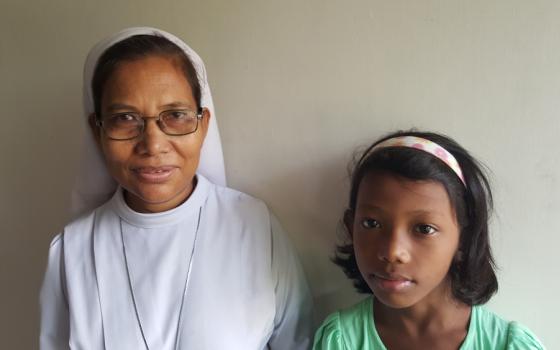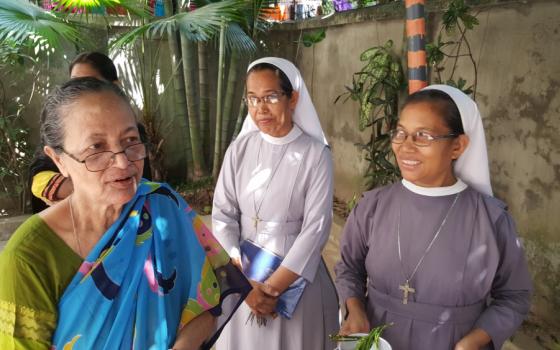Salesian Sr. Zita Rema works in the Chittagong diocese of eastern Bangladesh, leading a ministry to assist indigenous people from rural areas who are migrating to urban centers, such as Chittagong, Bangladesh's second largest city.
Rema, 56, is herself Garo, a group of about 200,000 — predominately Christian — in a country that is overwhelmingly Muslim. The Garos have long experienced problems stemming from discrimination and poverty.
Rema, who in 2015 celebrated her 25th year as a religious, recently spoke to Global Sisters Report about her ministry and the overall situation in Bangladesh.
What exactly do you do as an advocate on behalf of those trying to settle in Chittagong?
Rema: I do a lot of negotiating with landlords and employers, trying to settle issues and problems that can arise when new migrants come here. People come here for a simple reason: They are poor, and their local village economies are not doing well. So they need a start in the city but don't always know how best to start a new life. The problem is particularly strong among young women who are sometimes in danger. Girls who work in beauty parlors often need help the most — many have been exploited sexually, some in types of trafficking. So we try to help them adjust and pave the way to a new and better life.
There are many references to how the country was affected by the 1971 war of independence from Pakistan. [Pakistan failed to usurp an independence movement, but the resulting war and humanitarian crisis killed hundreds of thousands.] How has that legacy continued to affect the country?
It has affected the country quite a bit. Many people fled to India but lost homes and property as Pakistani soldiers came in. Some never came back, but among those who did, the loss was great, and many families are still recovering from that trauma. That put many in a difficult position. As things have evolved, working in the fields, in farming, has become less attractive, and work in villages has declined. With factories here [in the city] and work available, and more schools here, too, the choices people make are obvious. In village areas, there are no real good colleges, for example. Of course, not everything stems from that war, but it's in the background in many people's family histories.
What is the work in the cities like?
It's a hard life. For many of the men, it is working factories that manufacture gas cylinders — very difficult. For the women, it is either working as a domestic worker or in the garment industry. The garment industry in particular is hard work — it is hard mentally and physically. Families end up renting a house, very small, with no windows, and much of what they spend is for rent. In the garment industry, people earn maybe $5 a day, and most of that is spent on rent. Diets are meager — rice and vegetables. It is difficult for them. Some people, of course, do better than others, but most people are suffering, only able to save a little.
How does this affect children?
It affects them in different ways. Some children stay in the villages with their grandparents, but most are with their parents, who are struggling. Parents are working so hard and are so tired at the end of the day that they don't always provide the love their children need. One family I see every month experienced parts of this: One daughter was with the parents in the city, the other living with the grandparents in the village. For a while, the parents were apart because of work in the city, and one remained in the village. These are common situations in our country.
What are the satisfactions of your ministry?
This is a congregational ministry based in the diocese, and we very much believe our mission is maintaining "an option for the poor." People are being helped, and I like to see people solve their immediate problems. It is a hard life when they come to the city, and maybe we can ease their burden a bit.
[Chris Herlinger is GSR's international correspondent. His email address is [email protected].]


